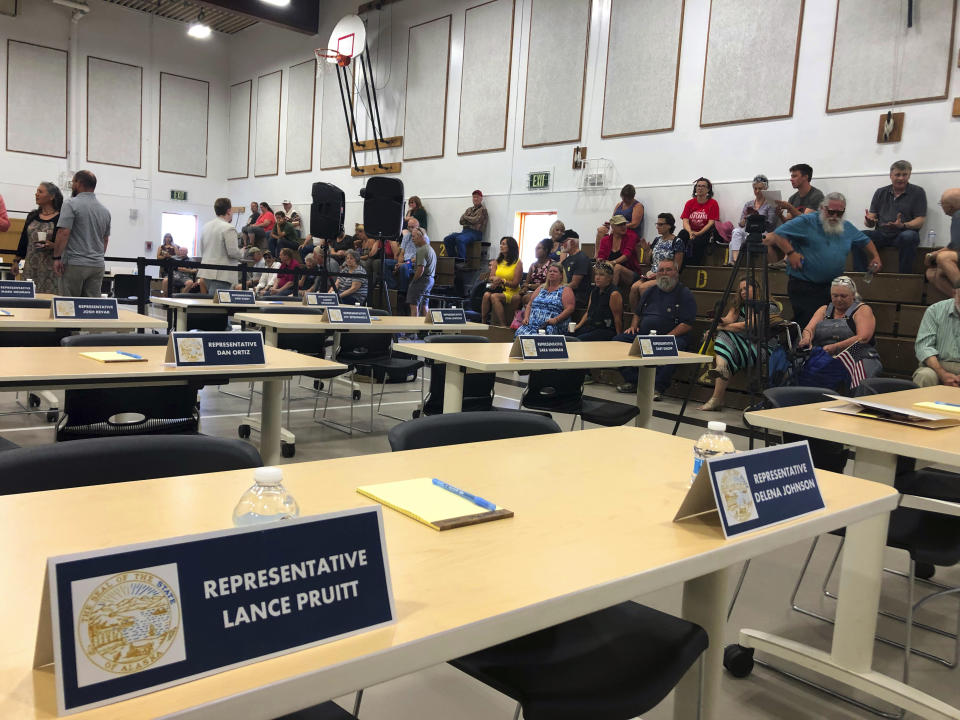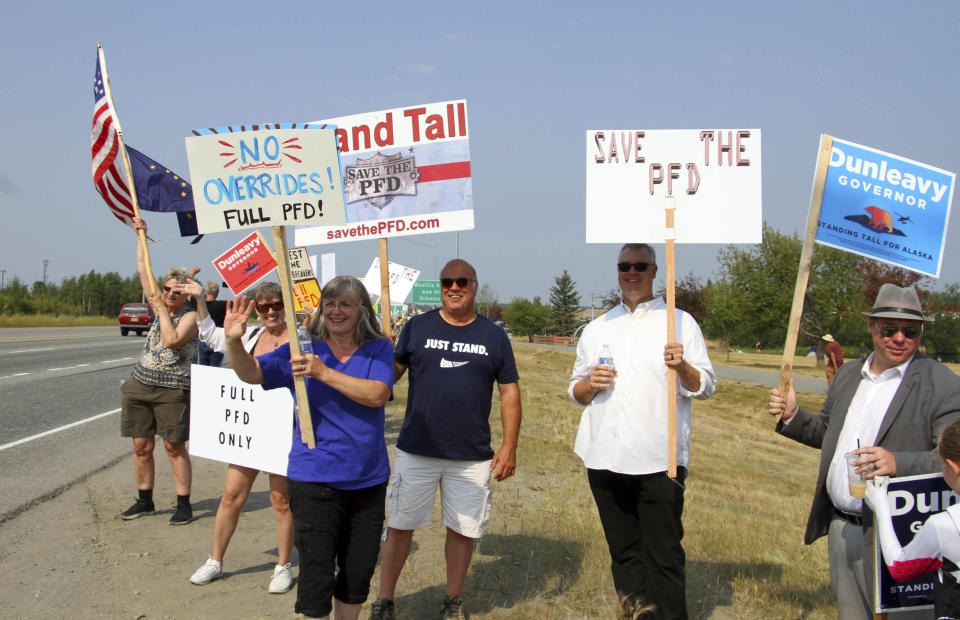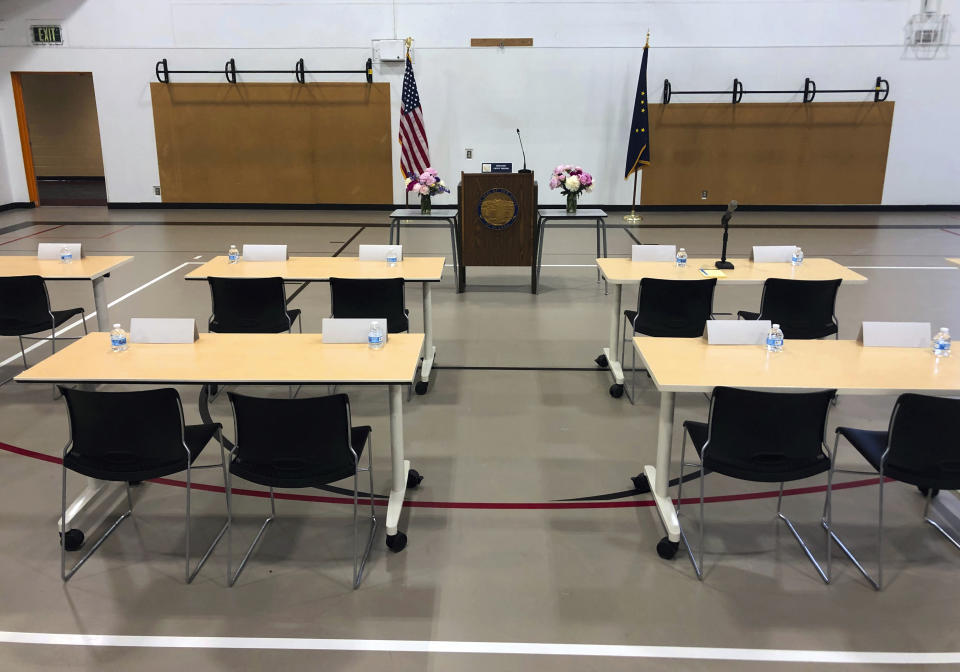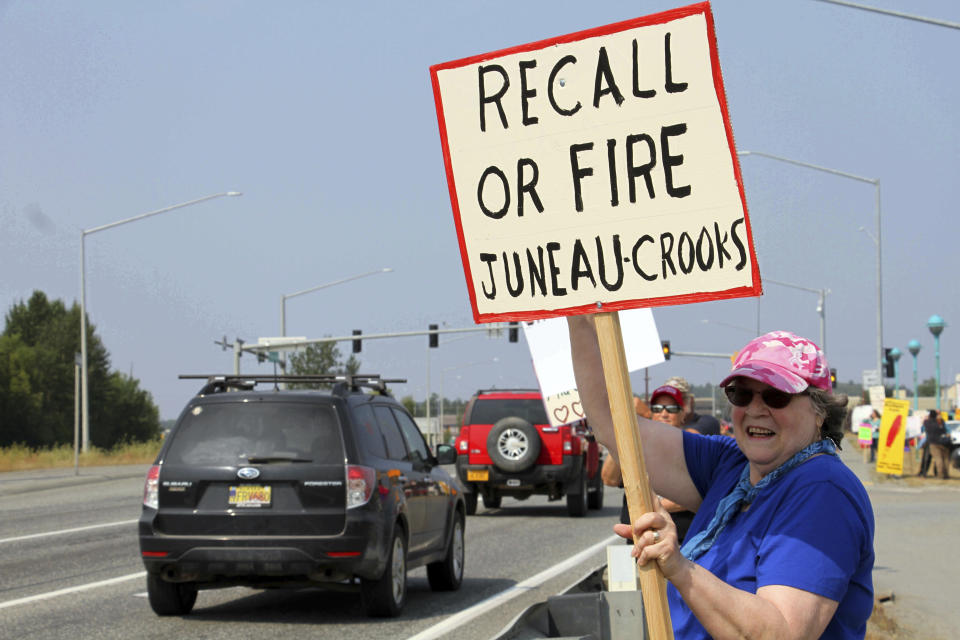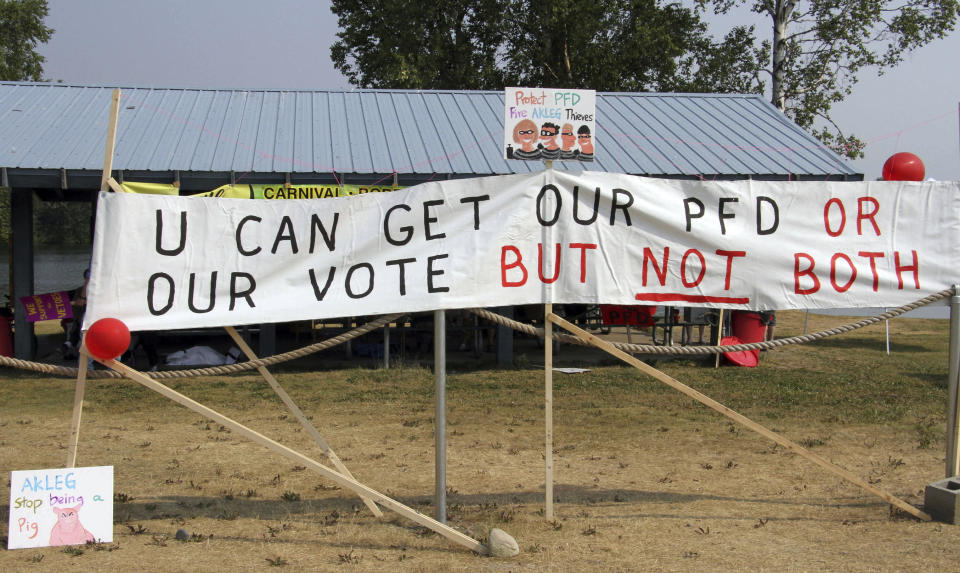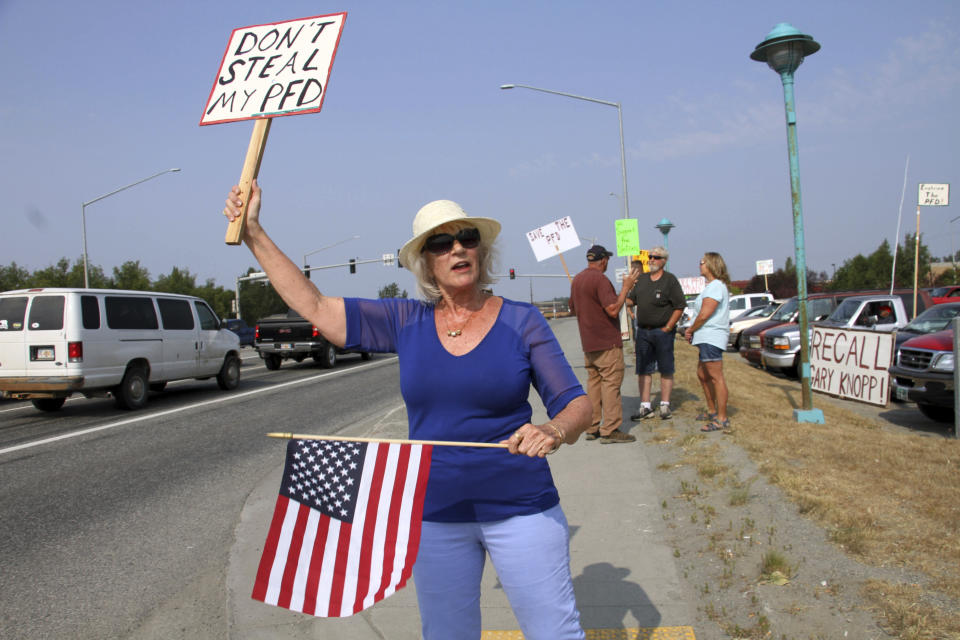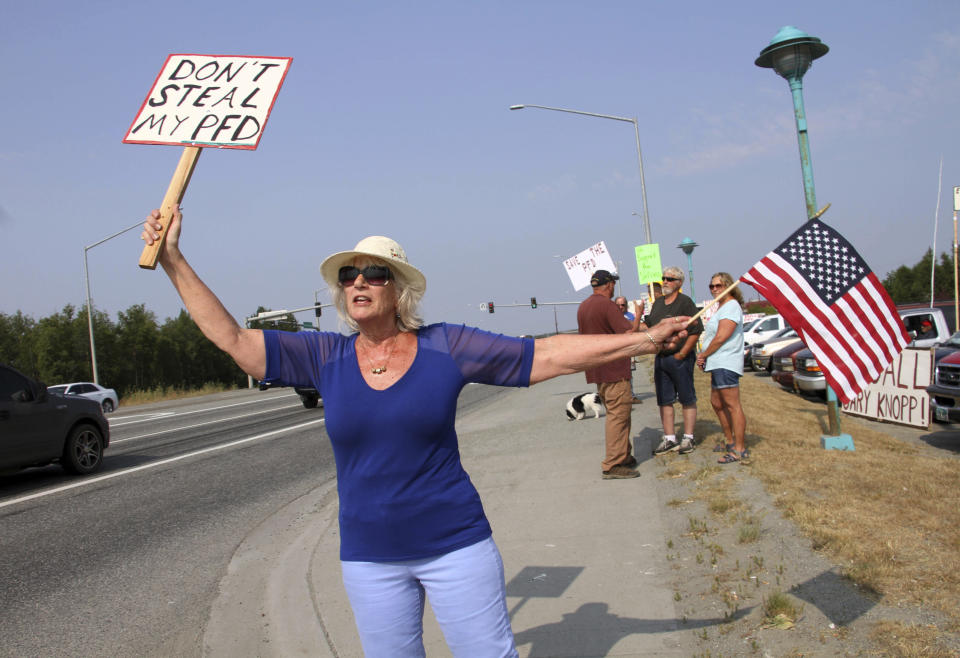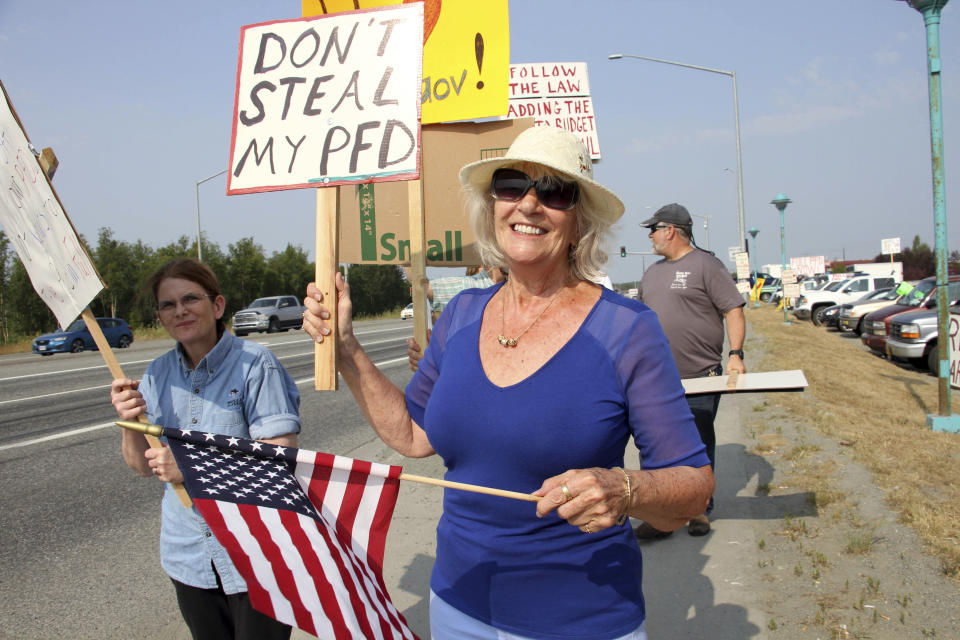Divided Alaska Legislature convenes session in 2 cities
ANCHORAGE, Alaska (AP) — Divided Alaska lawmakers have found little to agree on this year, and that includes where to hold a special session.
The Alaska state Senate kicked off its second special session in Juneau on Monday and promptly removed its majority leader, who was 600 miles (965 kilometers) away in Wasilla, with nearly a third of her fellow lawmakers.
The first-term governor, a Republican, called for them to meet there, saying said a change of venue to the heart of his conservative base would be good for lawmakers.
"It is our constitutional duty to be here," said Republican Sen. Mia Costello from Wasilla. She complained that members of the media probably heard about her losing her position as majority leader before she did.
But leadership from both parties, citing security and other issues, disagreed, and started off the session appointing Sen. Lyman Hoffman, a Bethel Democrat, as majority leader. In Alaska, each house is led by a coalition of Republicans and Democrats, so the majority leader can be from various parties. The House is dominated by Democrats and the Senate by Republicans.
The main issue for the special session is to determine the amount of this year's Alaska Permanent Fund dividend, a hot-button issue in Alaska. Nearly every single Alaska residents receives the check for simply living in the state.
The checks are from earnings of the Alaska Permanent Fund, a savings account seeded with oil money and grown through investments. Annual dividends traditionally have been paid with fund earnings, which lawmakers also began using last year to help pay government expenses amid an ongoing budget deficit.
A formula in state law to determine the amount of the checks has not been followed the last three years, resulting in reduced check sizes. Gov. Mike Dunleavy, who took office in December, campaigned on paying a full dividend, which would cost about $1.9 billion and result in checks around $3,000 this year. In five months, the Legislature wasn't able to come to an agreement.
About 50 demonstrators on Monday in Wasilla called for "fully funded" dividends.
"I hope that the legislative branch follows the law and does what the people of the state have said. Most of them are for the PFD," said Katherine Hayes, while waving a "Don't Steal My PFD" sign in her right hand and an American flag in her left.
Laura Jones said she wants politicians to take a hands-off approach to the oil checks and wants to get rid of the "crooks" in Juneau, just as she says President Donald Trump is cleansing Washington.
"We want them out of Alaska," she said.
Neither the House, led by a coalition of Democrats and moderate Republicans, nor the Republican-controlled Senate, could pass a bill for the full payout.
Alaska is not the only state in the West to see upheaval on the legislative process.
Last month the Oregon Legislature was disrupted by a walkout by Republican senators, who fled the Capitol to thwart climate legislation. The 11 GOP senators, who make up the minority in the Oregon Senate, left the Capitol on June 20 and remained away for nine days to protest a proposal that would have been the second in the nation to cap and trade pollution credits among companies.
Lawmakers also have just five days to take action on budget cuts that they said would seriously cut across all age groups.
Giessel and Edgmon conceded that they do not currently have the votes to override Dunleavy vetoes, which includes a $130 million cut to the University of Alaska system. University of Alaska President Jim Johnsen has called the cut as devastating. Furlough notices to employees have already been sent.
___
Associated Press writers Mark Thiessen in Anchorage and Sarah Zimmerman in Salem, Oregon, contributed to this report.
